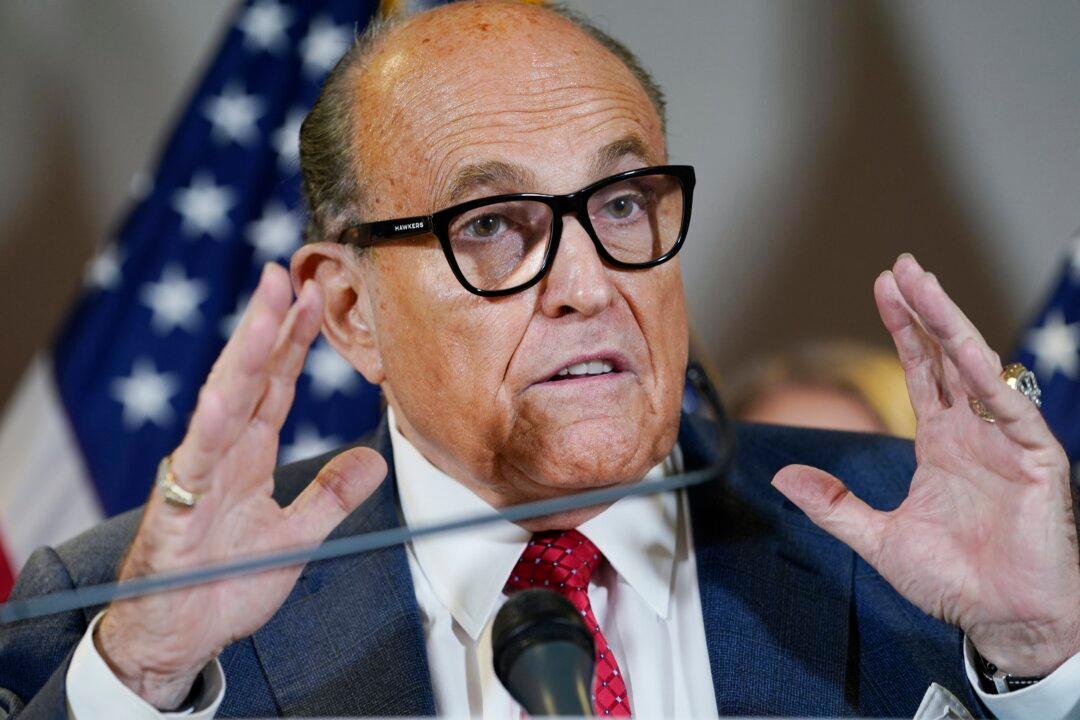Misinformation promoted by NBC and two other news outlets about Rudy Giuliani was later corrected, although some readers may remain unaware because the network failed to fully correct its reporting.
NBC, The New York Times, and The Washington Post added corrections to reports that initially claimed the former New York City mayor and former President Donald Trump’s onetime personal lawyer received a warning from the FBI that he was the target of an alleged Russian intelligence influence operation.





